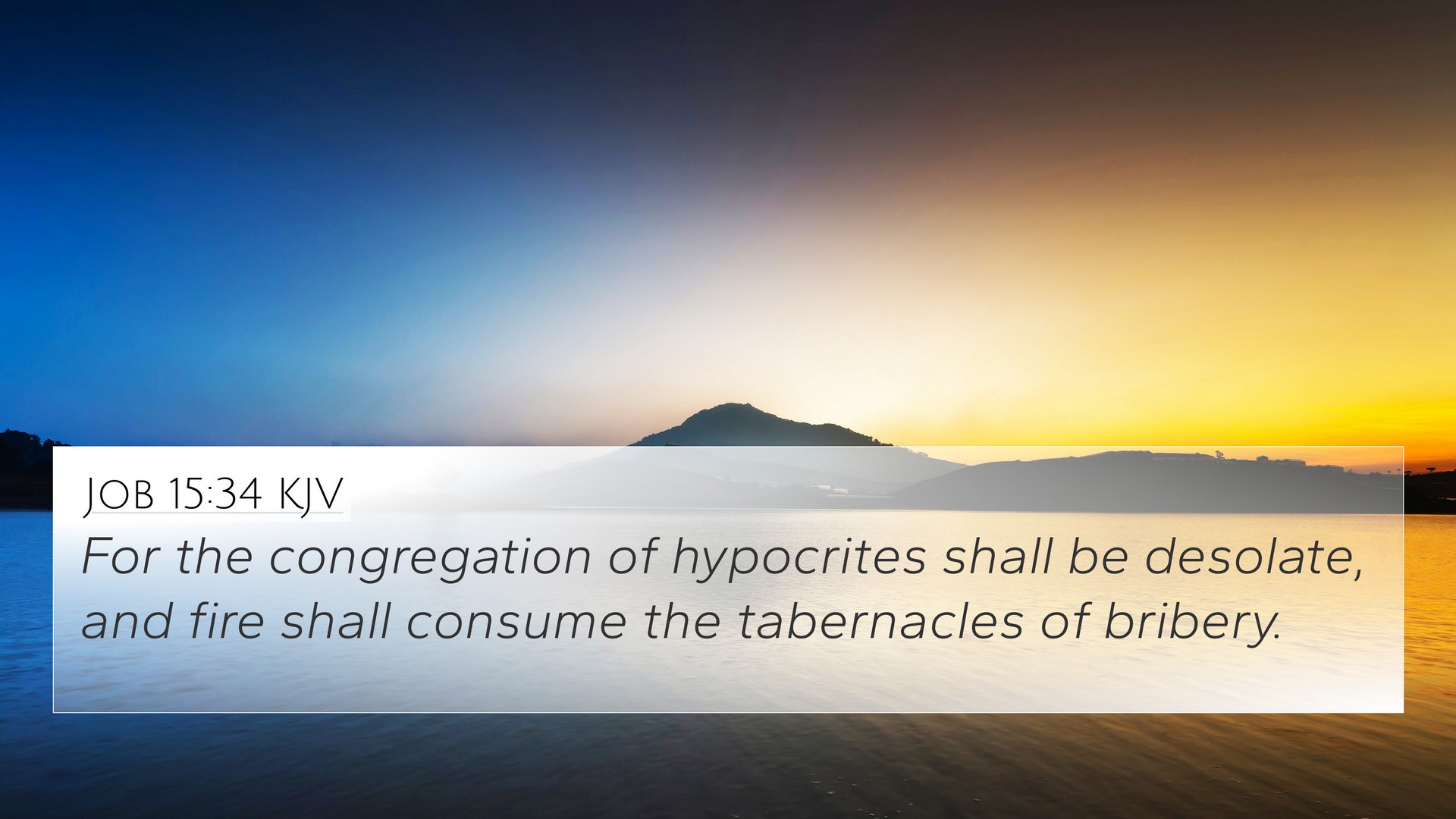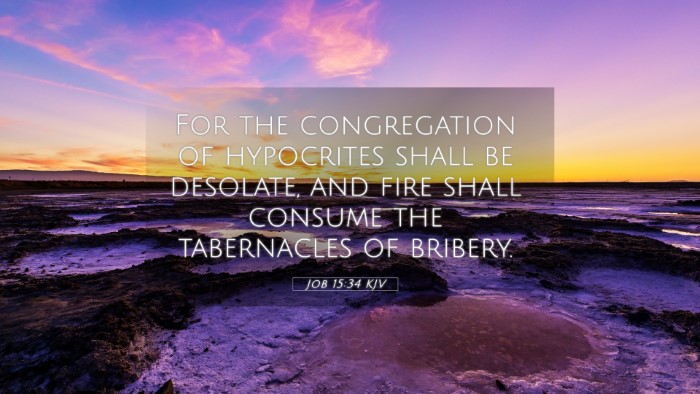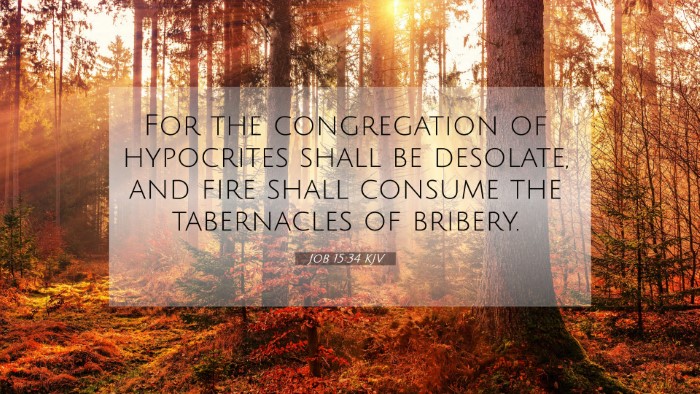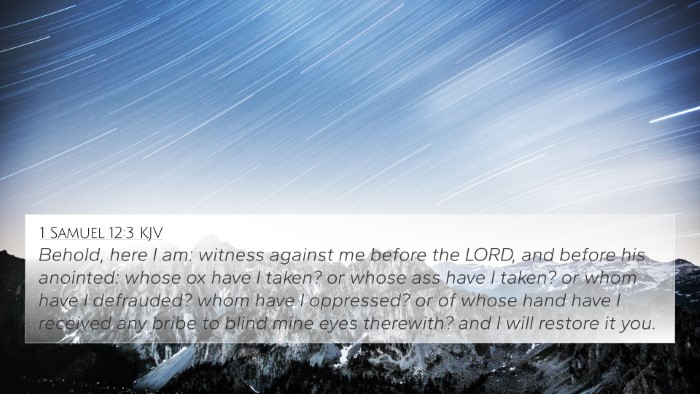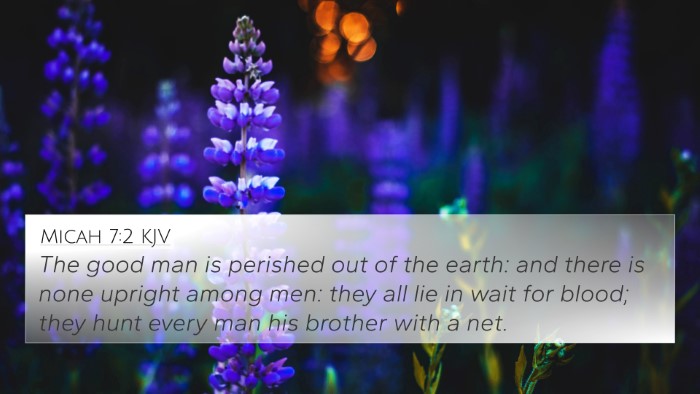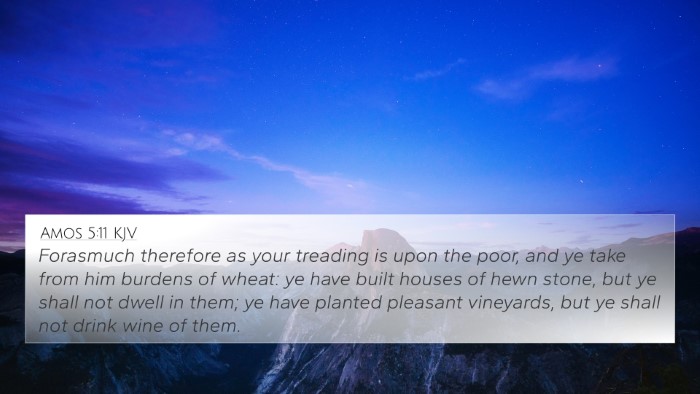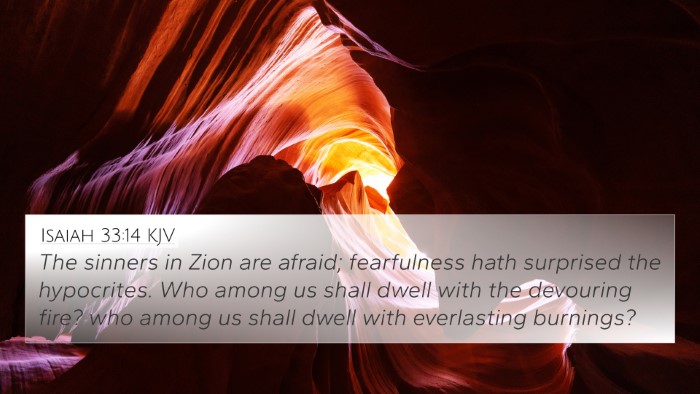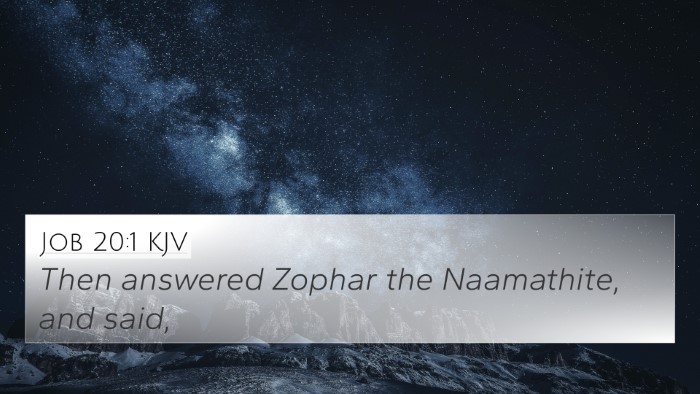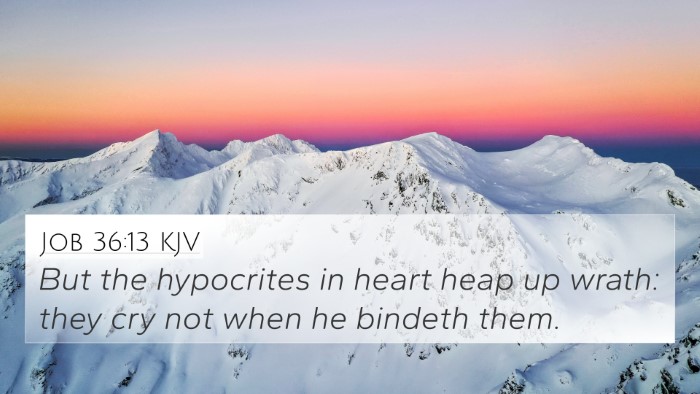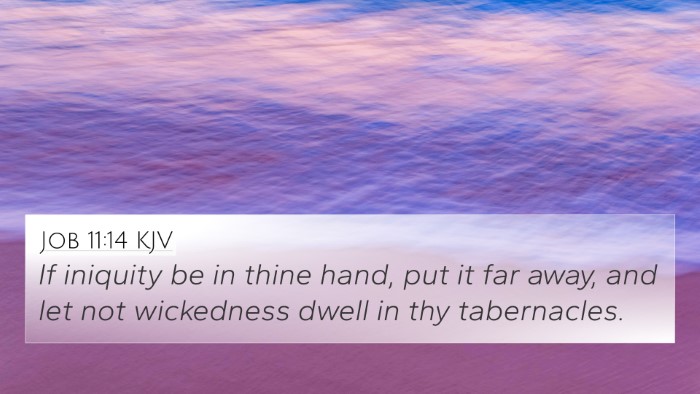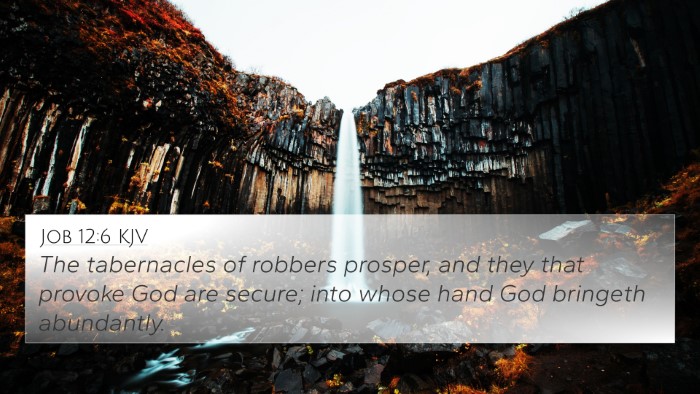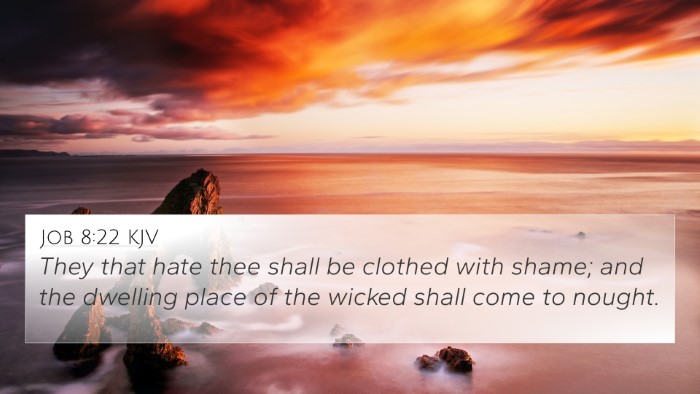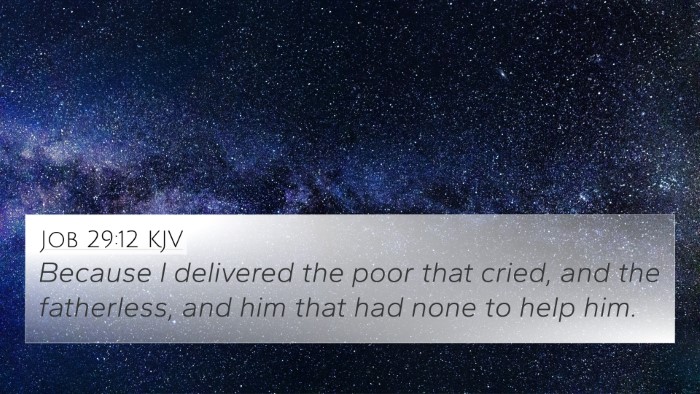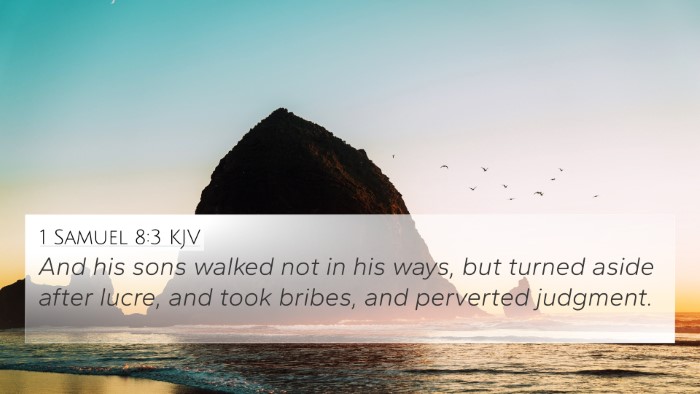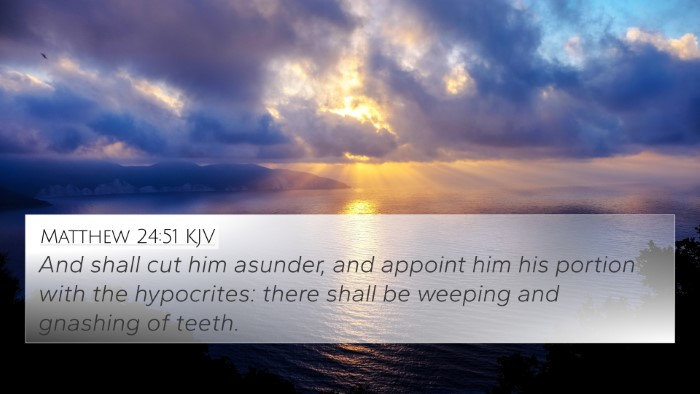Understanding Job 15:34: A Combined Commentary Analysis
Job 15:34 reads, "For the company of the hypocrites shall be desolate, and fire shall consume the tabernacles of bribery." This verse is part of a larger discourse where Eliphaz, one of Job's friends, is speaking. To gain a deeper understanding of this verse, we can draw insights from reputable public domain commentaries such as those by Matthew Henry, Albert Barnes, and Adam Clarke.
Verse Interpretation
In this verse, Eliphaz asserts a profound truth about the fate of the wicked and the hypocrites. Hypocrisy, as described in this passage, leads to desolation and destruction, chiefly represented by fire which consumes everything associated with corruption.
Commentary Insights
-
Matthew Henry's Commentary:
Henry emphasizes that the 'company of the hypocrites', referring to those who pretend to be righteous but are filled with deceit, will not only face judgment but will find their support systems barren. He articulates that such individuals may appear prosperous, but their fraudulence invites divine retribution.
-
Albert Barnes' Notes:
Barnes underscores the idea of a moral law in the universe that leads to inevitable consequences for sinful actions. He correlates the metaphor of fire with the purity of God's judgment, where all that is unclean will be eradicated. The verse serves as a warning about the consequences of sin and a reminder of God's absolute justice.
-
Adam Clarke's Commentary:
Clarke suggests that this desolation pertains not solely to material ruin but extends to spiritual emptiness as well. He reflects on the notion that the hypocrites may rally together, but their destructive end is inevitable due to their betrayal of truth.
Thematic Connections and Cross-References
Job 15:34 can be linked to several other Bible verses that echo similar themes of judgment, hypocrisy, and retribution. These connections help clarify the message and implications of Eliphaz's statement.
- Psalms 1:6: "For the Lord knows the way of the righteous, but the way of the wicked will perish."
- Psalms 37:20: "But the wicked will perish; the enemies of the Lord are like the splendor of the meadows; they shall vanish, like smoke they shall vanish away."
- Proverbs 15:29: "The Lord is far from the wicked, but He hears the prayer of the righteous."
- Isaiah 33:14: "The sinners in Zion are afraid; Fearfulness has seized the hypocrites: Who among us shall dwell with the devouring fire? Who among us shall dwell with everlasting burnings?"
- Malachi 4:1: "For behold, the day is coming, burning like an oven, and all the proud, yes, all who do wickedly will be stubble. And the day which is coming shall burn them up,"
- Matthew 3:12: "His winnowing fan is in His hand, and He will thoroughly clean out His threshing floor, and gather His wheat into the barn; but He will burn up the chaff with unquenchable fire."
- 2 Thessalonians 1:7-9: "...and to give you who are troubled rest with us when the Lord Jesus is revealed from heaven with His mighty angels, in flaming fire taking vengeance on those who do not know God, and on those who do not obey the gospel of our Lord Jesus Christ."
Expounding on Key Themes
The overarching themes of this verse and its related passages underscore the principles of divine justice, the perilous nature of hypocrisy, and the ultimate judgment that awaits the wicked. Through a comprehensive Bible cross-reference approach, we can better understand the nature of God's judgment and the social implications of hypocrisy in a faith community.
The Role of Cross-Referencing
Understanding these connections between Bible verses is critical for anyone studying scripture. This technique aids in grasping the full scope of biblical teaching. Tools for Bible cross-referencing, such as a Bible concordance or a cross-reference guide, can assist in navigating these themes effectively.
User Intent and Application
For those asking "What verses are related to Job 15:34?", the cross-references provided offer a wealth of understanding. Inter-Biblical dialogues between the Old and New Testaments regarding the fate of the wicked, as well as the stark contrasts between the righteous and the hypocrites, can provide significant insights for sermon preparation or personal study.
Conclusion
Job 15:34 stands as a stark reminder against hypocrisy and highlights the consequences of living contrary to God's will. By utilizing comparative Bible verse analysis, we can glean rich insights from this verse and its connections, enhancing our understanding of biblical truths and their practical applications.
